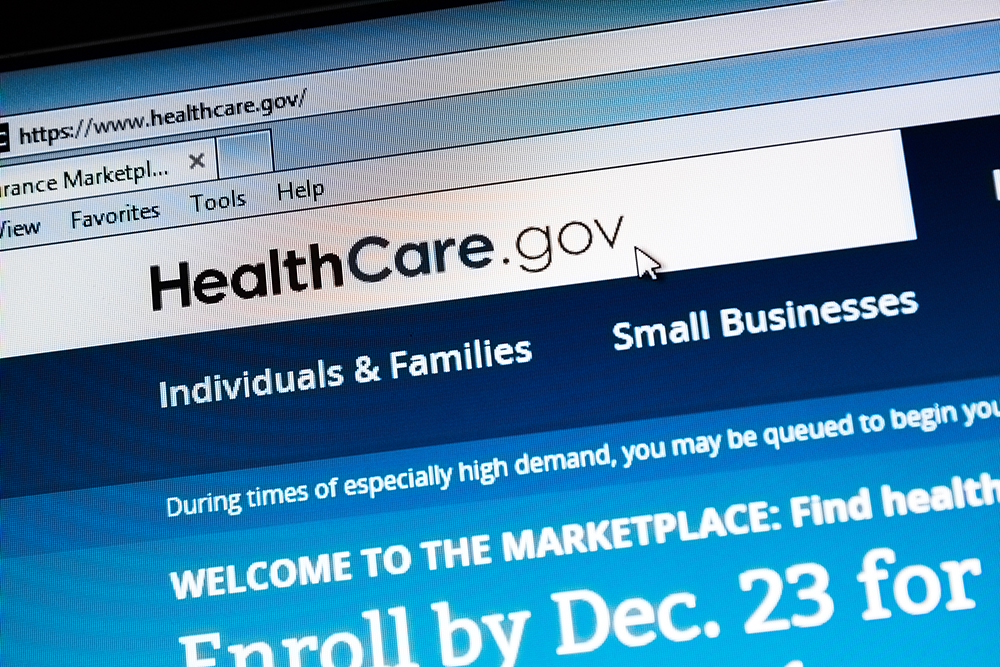Insurance companies are requesting double-digit rate increases for Affordable Care Act marketplace insurance in Maine, according to rate filings released Wednesday by the state Bureau of Insurance. However, for most customers in Maine, all or nearly all of the proposed 2017 rate increases will be absorbed by government subsidies.
According to the rate filings proposed for 2017 individual plan coverage, Community Health Options is requesting a 22.8 percent increase, Harvard Pilgrim is requesting 18.7 percent, Aetna is seeking 14.2 percent and Anthem Blue Cross Blue Shield is requesting 14.1 percent. The rate increases are not final and are subject to review by the Bureau of Insurance and the federal government. Next year will be the first year that Aetna will offer marketplace coverage in Maine.
Because of the way the Affordable Care Act is structured, those who receive subsidies – about 90 percent of the 84,000 in Maine who have marketplace insurance – will see zero or minimal premium increases in 2017.
That’s because the subsidies – a family of four can earn up to $97,200 and still meet the criteria for a subsidy – become more generous when rates increase. At the same time, the amount people pay is capped, so the monthly premiums remain constant. The subsidies are available to people earning 100 percent to 400 percent of the federal poverty limit.
The premiums do increase when wages go up, or if other factors change, such as the subscriber chooses a different plan on the marketplace or if the family size changes.
But if everything stays constant, the monthly premium for patients will not increase, according to the U.S. Department of Health and Human Services.
“Patients who qualify for subsidies will be protected,” said Emily Brostek, executive director of Augusta-based Consumers for Affordable Health Care.
The ACA was designed to enable people who don’t have access to employer-based health benefits – often the self-employed or part-time workers – to buy affordable individual insurance. Previously, individual insurance was often more costly, and many people went without coverage. The Affordable Care Act requires people to buy insurance or pay fines.
EVOLVING PLANS
A recent study by the federal DHHS showed that premiums increased 4 percent nationally for 2016, despite reports of double-digit increases in some states.
In Maine, the substantial rate increases proposed for 2017 are not a surprise to health care experts. Many predicted that insurers would raise insurance premiums after underestimating claims in 2015. Insurers must submit rate requests in May that are considered to take effect the next January.
Insurers lost money when patients made higher-than-expected claims in 2015, according to numerous reports. Last year, insurers requested much more modest premium increases, including 0.5 percent for Community Health Options, while the other insurance companies increased premiums by about 5 percent.
“This continues to be an unprecedented time of change in health care,” said Colin Manning, an Anthem spokesman. “The market continues to evolve, and the changes in our 2017 rate filings reflect several factors such as an increased use of medical services and added costs of drugs and medical therapies that have put upward pressure on rates and underscore the work that needs to be done to continue to stabilize the exchanges.”
Brostek said even though most patients will not have large premium increases, there could be repercussions. If rates climb substantially every year, it could cause financial problems with the federal budget.
Community Health Options, a cooperative launched in Maine that was designed to offer patients an alternative to traditional insurance companies, captured about 80 percent of the market in its first three years. It ran into financial difficulties in 2015 when higher-than-expected claims caused a $31 million loss.
The co-op’s financial stability is being monitored monthly by the Bureau of Insurance, which in April reported that Community Health Options had two solid months of financial performance. Community Health Options was the only cooperative the country to be in the black in 2014, according to media reports.
“We have the most successful co-op in the country,” said Wendy Wolf, president and CEO of the Maine Health Access Foundation, which promotes access to quality health care. “They had some growing pains.”
Kevin Lewis, Community Health Options’ CEO, did not respond to requests for an interview Wednesday afternoon.
Wolf is concerned about the future of health insurance, saying that trends such as having patients pay more out-of-pocket costs with higher deductibles and co-pays are troubling.
“The benefits continue to get skinnier,” Wolf said. “Having more out-of-pocket costs is a disincentive to use insurance wisely. People are going to be asking whether the insurance is worth the cost.”
Lisa Mae Parker of Parsonsfield has had Affordable Care Act insurance since 2014. She said having affordable insurance options spurred her to start her own cake-baking business, knowing that she could have health benefits while launching her small business. Parker declined to say what her monthly premiums costs are, but she said it’s affordable, and she’s glad to hear her premium should be about the same in 2017.
“I’m grateful to have insurance,” said Parker, 55. “So far, I’m really happy with my plan.”
Send questions/comments to the editors.




Success. Please wait for the page to reload. If the page does not reload within 5 seconds, please refresh the page.
Enter your email and password to access comments.
Hi, to comment on stories you must . This profile is in addition to your subscription and website login.
Already have a commenting profile? .
Invalid username/password.
Please check your email to confirm and complete your registration.
Only subscribers are eligible to post comments. Please subscribe or login first for digital access. Here’s why.
Use the form below to reset your password. When you've submitted your account email, we will send an email with a reset code.